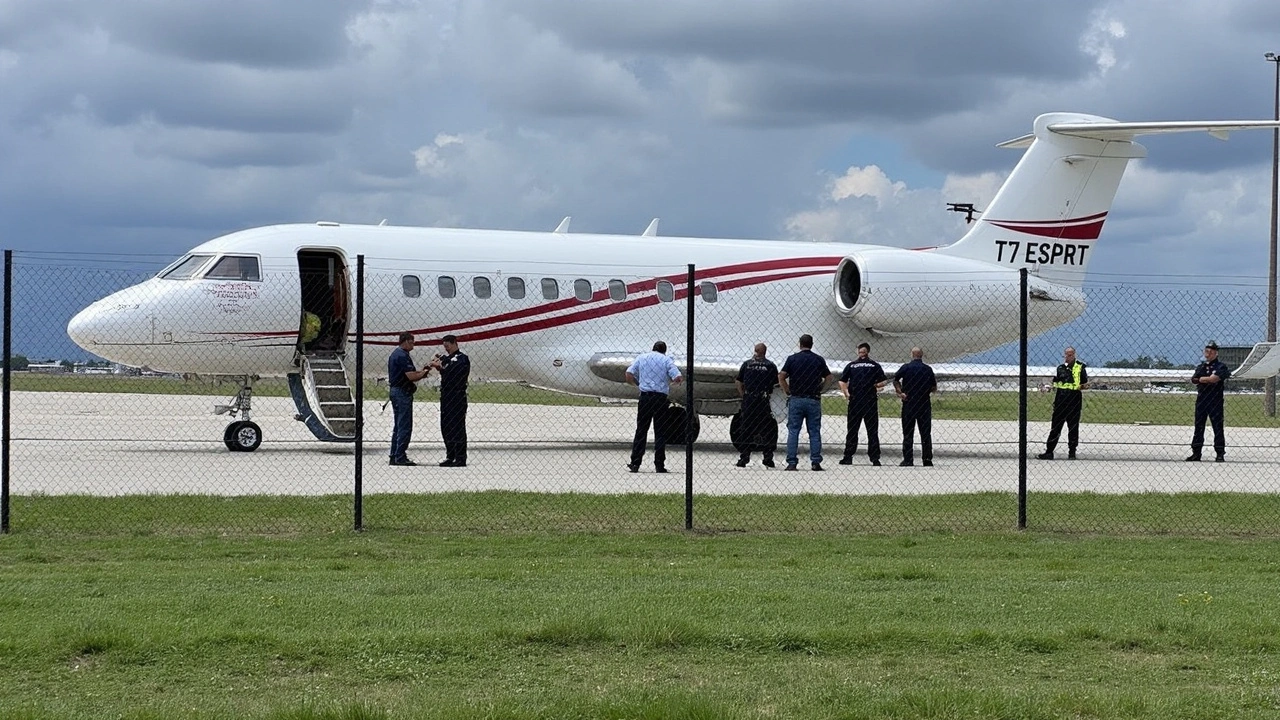U.S. Seizes Nicolas Maduro's $13 Million Private Jet Amid Sanctions Violations
U.S. Seizes Nicolas Maduro's $13 Million Private Jet Amid Sanctions Violations
In a dramatic turn of events, the United States has seized a $13 million private jet used by Venezuelan President Nicolas Maduro. This move has intensified the diplomatic tensions between the nations, particularly as Maduro has passionately condemned the action, labeling it as 'piracy.' The Dassault Falcon 900EX jet, which became a significant asset for the Venezuelan leader, was seized in the Dominican Republic before being flown to Fort Lauderdale, Florida.
Details of the Seizure
The Justice Department of the United States revealed that the jet was 'illegally purchased' through a shell company under obscure circumstances. It was then smuggled out of the U.S., intended for the use of Maduro and his close associates. Attorney General Merrick Garland stressed that the seizure was a necessary step due to the violations of existing U.S. sanctions against Venezuela.
In reaction, Venezuela's foreign ministry harshly criticized the move, branding it as a 'criminal practice.' They argued that such actions exemplify a pattern of unlawful conduct by the U.S. against Venezuelan interests. While the Dominican Republic confirmed its territory was used solely for the aircraft's maintenance, they clarified that they did not partake in the U.S.-led investigation.
Legal and Diplomatic Implications
The jet's purchase dates back to late 2022 and early 2023, orchestrated by individuals linked to Maduro and executed through a shell company based in the Caribbean. By April 2023, the plane was illegally moved from U.S. soil to Venezuela. Since May 2023, President Maduro has principally utilized this jet for various state visits, solidifying its importance in his administration's international dealings.
This seizure ties into a broader narrative of U.S. sanctions targeting diverse entities and individuals in Venezuela considered to engage in 'criminal, antidemocratic, or corrupt activities.' These sanctions initially took root in 2005 but saw significant expansion during the Trump administration, encompassing both financial and sectoral elements to exert more pressure on the Venezuelan regime.
Context of the Sanctions
The backdrop to these severe sanctions is rich with political and social unrest. The U.S., alongside the European Union and a host of Latin American countries, refuses to accept Maduro's victory in the heavily contested July 28 presidential elections. Allegations of widespread repression and election tampering have marred the legitimacy of the process.
Leaders of the opposition have claimed a sweeping win but have struggled to disseminate comprehensive voting data due to the tight grip of Maduro's government. The post-election climate has been turbulent, marked by violent skirmishes and protests leading to significant casualties. Official reports indicate 27 deaths and at least 192 injuries amid these confrontations.
Repercussions and Future Steps
The National Security Council in the U.S. commended the aircraft's seizure as a crucial move to ensure Maduro experiences tangible consequences for his prolonged actions. The gesture stands as a symbolic yet potent message against the alleged corruption and dictatorship gripping Venezuela.
Analysts speculate that this action might not be the last, as the U.S. could further intensify its measures against the Venezuelan government. Efforts to dismantle the network of corruption and anti-democratic practices in Venezuela are expected to continue at an accelerated pace. The international community remains vigilant, much awaiting the next developments in this unfolding geopolitical drama.
As these events progress, the strain between the U.S. and Venezuela continues to deepen. Observers on both sides of the aisle are keenly monitoring for any signs of diplomatic engagement or further escalation. For now, the seizure of the Dassault Falcon 900EX serves as a stark reminder of the high stakes in this international power play.
